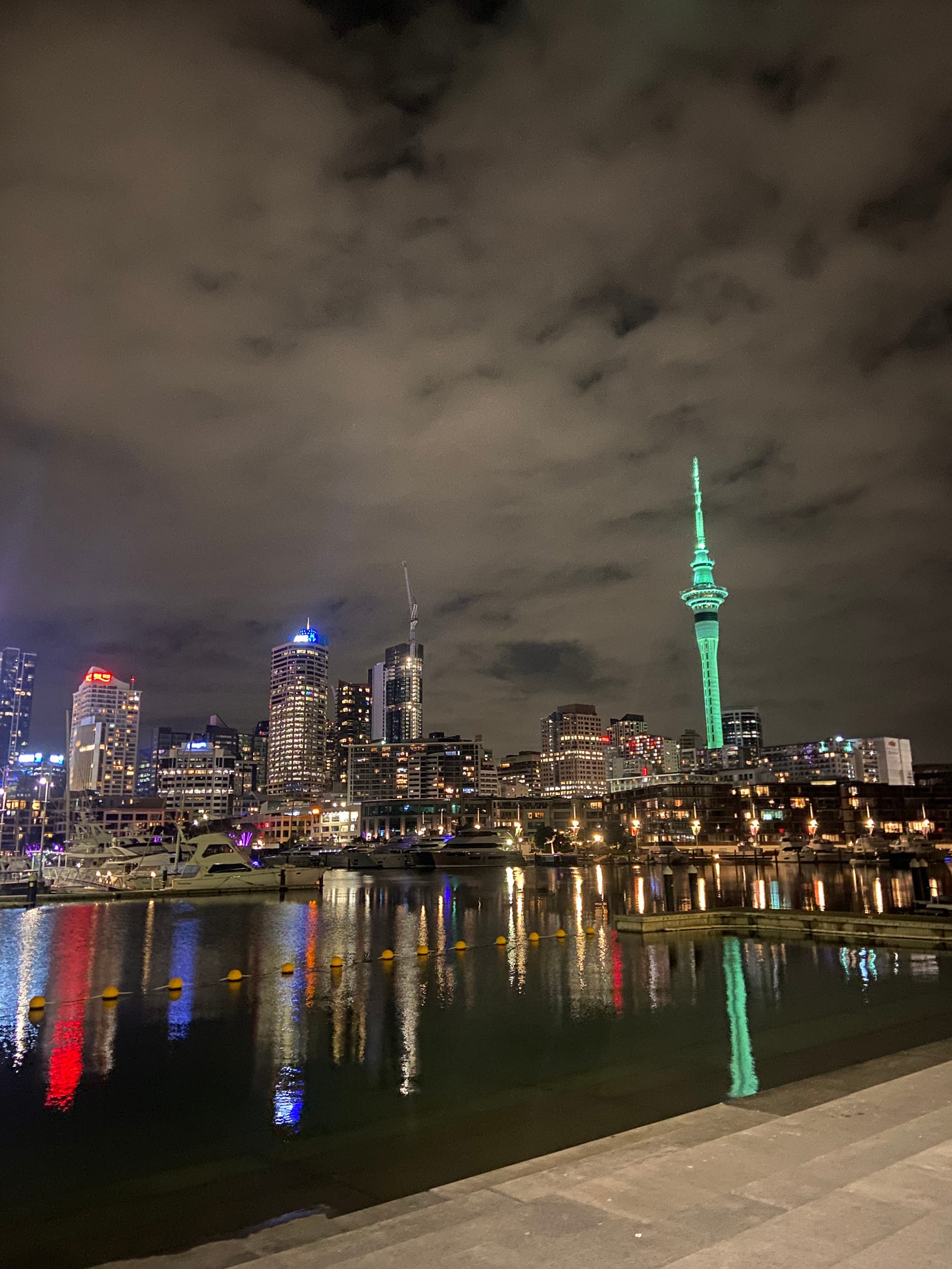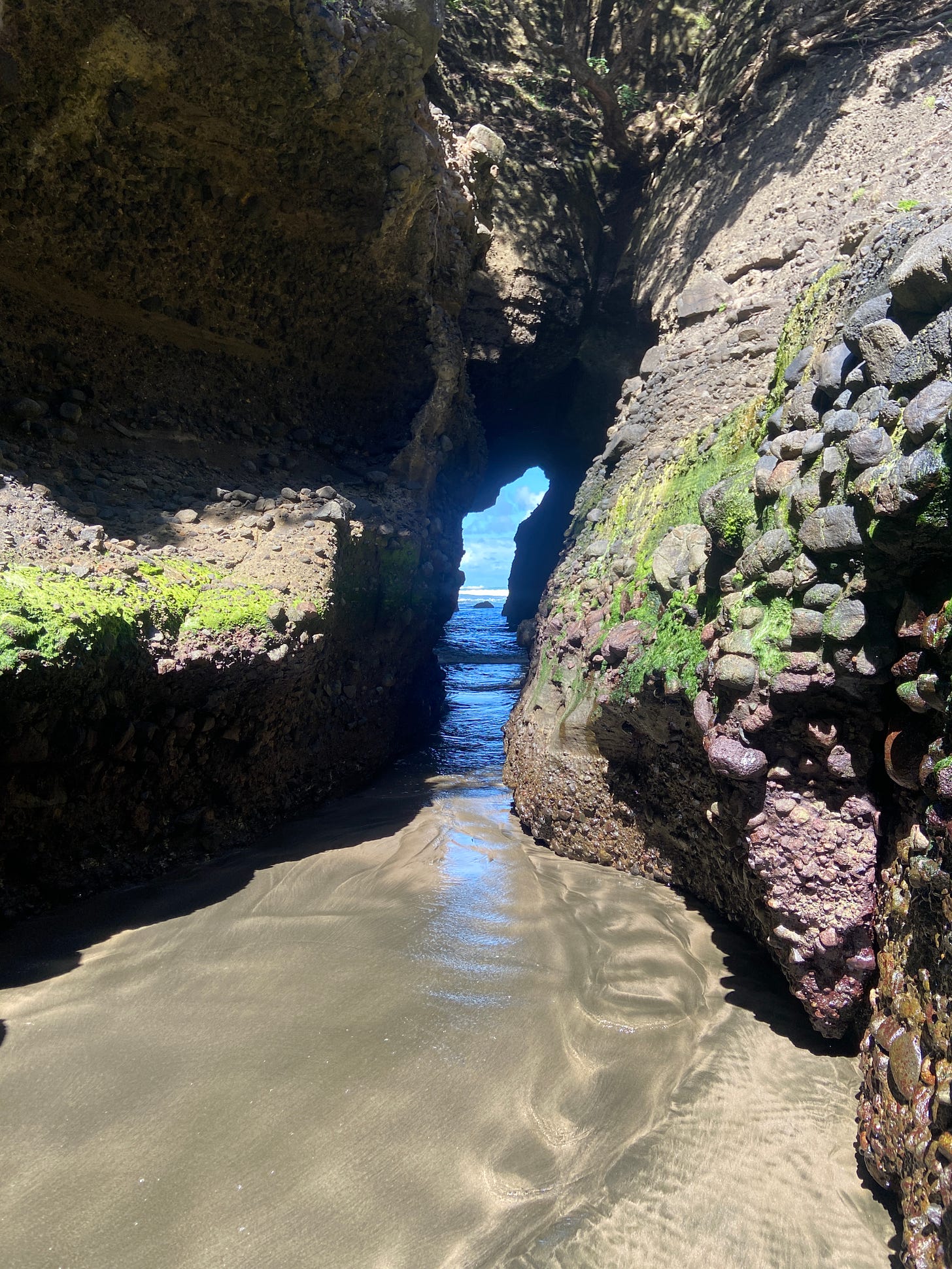It’s been quite a crazy week, filled with lots of work. So, what do you do when you come home in the evening and there’s nothing to do?
That’s right, you think about your next trip! Or at least that’s what I do.
For me, that means planning what I am going to do in December and January, that’s when I want to start the most amazing New Zealand road trip this universe has ever witnessed.
Well, to be honest, there’s one thing that I was worried about when I first started planning: my bank account. That might be one obstacle to overcome in order to make this an amazing trip… or is it?
All this planning does involve some pretty expensive things… partying in Queenstown, surfing, exploring glaciers, skydiving (I don’t really know about that one yet) and therefore, I’ll need to save as much money as possible on quite necessary things like food, transport or accommodation.
Now, me being me, this dilemma led to a quite extensive research on budget travelling, starting from all the different methods of saving money and ending in all the extra skills and advantages that come with travelling on a budget… and the things I found were… amazing.
Welcome to this week’s addition to the wisket, in which I prepare you and especially your wallet for the next trip.

Travelling on a budget has never been this easy
The average perception of going on vacation is that one time of the year where you are allowed to spend as much money as you want to and just leave your normal life back at home. This cool feeling usually stays for a week or two and then it’s back to normal with some okay-ish memories from this big holiday resort and a big big hole in your wallet - doesn’t sound too amazing, does it?
To give you some numbers: according to Forbes, the average American solo-traveller is expected to spend about 1400 Dollars on a three-day vacation throughout all the services - I don’t know about you, but personally, I wouldn’t want to spend that much money in three days. Half of the respondents to their survey budgeted 4000 Dollars (or more!) for the yearly travels, which is a crazy amount, considering the average American takes about ten days of holiday per year (you can look that one up here)!
If you’re interested in more numbers like these, consider checking out the Forbes article I referred to here, it includes some great statistics on travel costs and might be your first step to saving money on your next vacation.
Well, why don’t we combine the values travel brings (weekly wisket #2) with the idea of actually dealing with the money we’ve earned in a responsible and thoughtful way? Especially for young people, this way of thinking would be ideal, right?
If you’re like me and can easily give up on luxury and comfort in order to get some great memories, then travelling on a budget won’t be a hard task for you. Just go out, look for a cheap place to stay - maybe consider freedom camping when you’re comfortable - cook something for yourself and you’ll be fine and meet great people (we’ll get to this one later on)
In case you are not as adventurous, then there are still some great tools and methods to make travelling go by with the least impact on your wallet as possible. There’s actually a great YouTube video on this exact topic, I’ll go through some points of it now and link that to my experiences. You can watch the video here.
Essentially, it already starts with getting to the place of the vacation. A cool trick I discovered when watching the video is just looking for cheap flights all around the world, that way you may end up in a great place you otherwise would have never discovered!
If you are more into planning and knowing what is going to happen, then consider looking for flights with the help of artificial intelligence as used in the app Hopper, which basically analyses flight data to show you when the best time for your booking is going to be. Now, if you can reach your destination by car, then you should definitely consider doing so - it is going to be a great road trip and you will see lots of cool things along the way - plus, no need to worry about transport at all!
Alright, that’s for planning. Accommodation next. Personally, I have become a really big fan of staying in Hostels during my time in New Zealand - they are relatively cheap, most of them come with a kitchen - no need to eat in a fancy restaurant every day, cooking with your travel mates is way more fun and saves you money for an amazing last-day restaurant visit - and, most importantly, you meet some great people along the way. Consider Hostelworld to look for some good deals.
In case you prefer your own room and privacy, then a Hostel might not be the best choice. But that doesn’t mean that you need to spend tons of money on a fancy hotel room, there are lots of great deals out there, you just need to find them! Platforms like AirBnB can then also offer you some good savings on trips that can be booked right in the app - that’s something I really enjoy.
For activities in general - just go out and experience some cool stuff with your friends/ family! No need to book an expensive tour when you can just walk into the jungle or use the bus to get up into the mountains! Again, it’s all about knowing about the area - sometimes Google Maps is enough for that, speaking from experience!

Another really important thing is always being on top of your spendings - you do not want to fall into the black hole of spending money without knowing how much you have left.
To be honest, I don’t even use a particular app designed for that. I just open Apple Notes, set an amount of money I can spend for a particular time, write down each expense and set the goal of not reaching the amount I can spent, but staying below it - works for me and can be applied to everything in life, not just travelling!
So essentially, it is all about planning it right, not spending money for useless things or unnecessary comfort and staying on top of your spendings. In case you are interested in a deep-dive into more methods of budget-travelling, you can find one of the articles I used for my research here and this article shows some more cool digital tools you might want to use for your next trip.
Now, obviously everyone can decide themselves of how much to spend on their vacation - I definitely wouldn’t mind a 4-week luxury skiing holiday in the alps each year if I had the money for it - but just trying to travel on a budget is going to add so much more value to your trip.
How, you’re asking? Don’t worry, got this topic covered as well.
Again, some of this might refer to weekly wisket #2 as well, but I am just going to use those facts here as well since it fits so nicely with the topic.
Alright, first of all, my own experiences with travelling on a budget. I do need to admit: I haven’t always been the best with my money. But just the fact that two months ago, I was thrown into this situation of having to deal with my on money in a totally foreign country on the other end of the world has improved my skills of spending to an extent I wouldn’t have expected. That’s not just about keeping an eye on all of my expenses, but also the recurring question of: do I really need to spend money on this thing right now?
That’s the first thing you are going to learn when travelling on a budget: you force yourself into saving and checking constantly. Especially when you’re young, this skill is going to have a great impact on future decisions and will make you realise the true value of your money while keeping both your feet on the ground.
Secondly, you are going to be able to experience the country way better than from a resort.
Surely, being an all-inclusive tourist is nice. But let’s be real. If you truly want to get to know the country you visit with all its cultural and social differences, you need to dive into it and everything it has to offer - you cannot do this from the resort. Yet, if you discover the city and meet cool people, perhaps visit some hidden, not well known restaurant that is actually owned by a locally loved old couple that has been cooking for the neighbourhood for years, that’s when you’re really travelling! As my boss told me: visit the restaurant that looks like they’re going to punch you in the face when you come in. They make the best food.
It shows: when you are on a budget and are forced to think about where to stay, how to get the best food possible, how to get around and still make it an unforgettable journey, you start to become creative. And creativity leads to some great memories and experiences.
This actually links to another thing: the people you meet and the connections you build, they are going to stay for years. Especially in Hostels - that’s why I love them so much - everyone has a similar mindset - at least on why they are there. You can share ideas on travelling or just hang out with some nice people.
That’s what I experienced. if you want to have another read on this topic, here's another cool article.
Even though it might be a challenge - which at the same time can be seen as one of the greatest advantages of this concept - travelling on a budget is ultimately going to change the way you deal with money, cultural experience and other people forever.
So, if there’s one single advice you should take away from this article, it’s to take the trip of your life - and take it on a budget. It won’t just make your trip longer, it will also strengthen your mind to an unbelievable extent.
Trust me, you won’t regret it. Take the adventure. Use And share this article.




